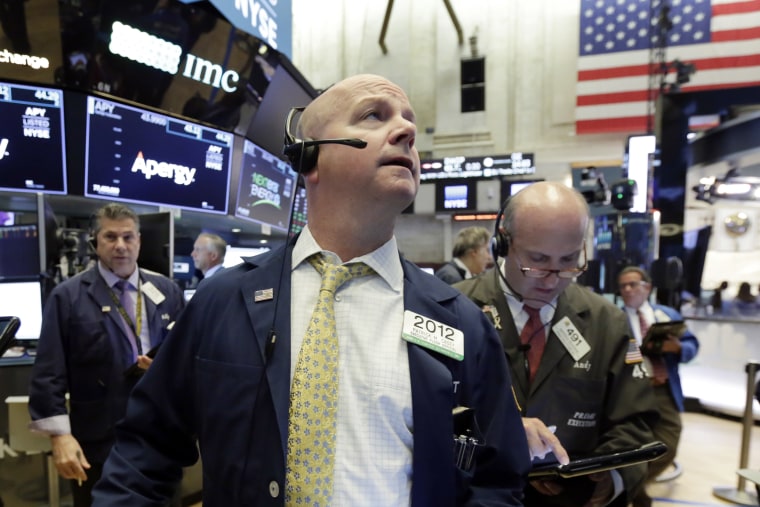The Dow Jones plunged 472 points Tuesday as the Italian political crisis that roiled global markets overnight stretched to Wall Street.
Over the weekend, Italian President Sergio Mattarella used his veto power to prevent the formation of a coalition government by the political parties known as the 5-Star Movement and the League. That spurred fears of a snap election that could come as soon as this fall and could essentially become a referendum on Italy's membership in the euro, a process being termed "Italexit" or "Quitaly."
A departure by Italy would destabilize the eurozone — and the prospect of Europe's third-largest economy bailing on the shared currency sparked a selloff in the U.S. as traders pared positions and rushed to safer assets such as gold and the Japanese yen.
“The political dysfunction in Italy, and worries that Spain could take a similar path, are buffeting markets worldwide as uncertainty breeds volatility," Greg McBride, chief financial analyst for Bankrate.com, told NBC News. "Uncertainty around Italy and the broader eurozone are an excuse for traders, not investors, to sell first and ask questions later."
On Tuesday, the rate on the U.S. 10-year note fell to 2.86 percent while the German 10-year rate hovered at 0.276 percent. The S&P 500 fell by around one and a quarter percent.
Many remain skeptical that Italy would actually take the step of leaving the euro, predicting that such a move would result in a massive economic shock that would hurt the populist government's constituents most.
"The irony is that the League's electoral base has more to lose from redenomination, bank failure, a high fiscal burden and inflation," Ian Bremmer, president of the global political research firm Eurasia Group told NBC News.
The European Commission’s Eurobarometer survey, which rates member states' position on the euro, currently ranks Italian support at 59 percent.
"Quitalty" might be "interesting to speculate about," said Bremmer, but "it's not what any Italian government is about to seriously consider."
